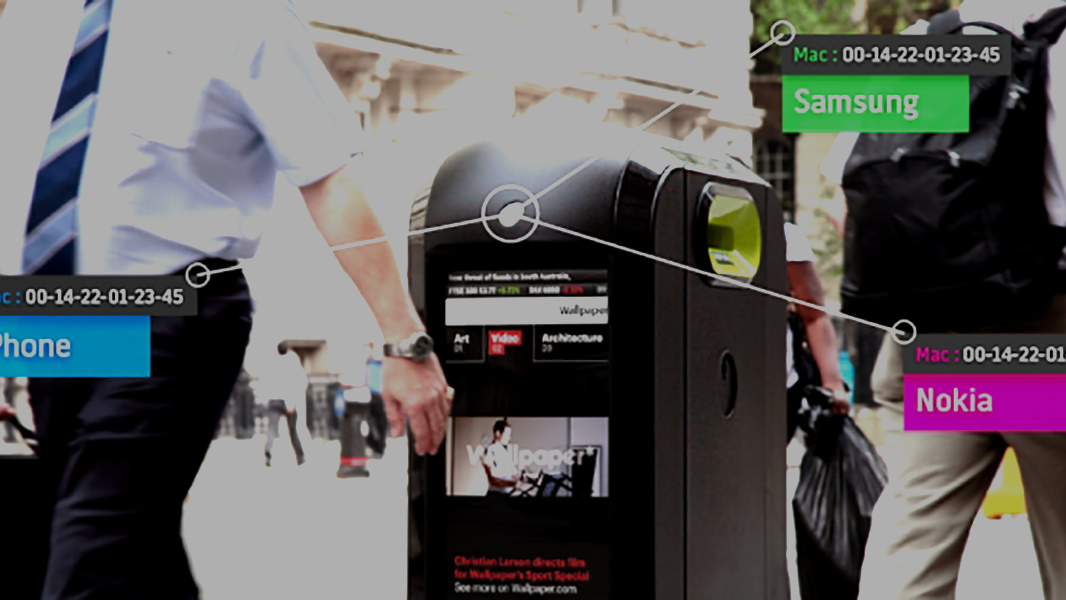Who Cares About TV Bins?

Ben Barker
13th August 2013
We’ve talked a lot recently about changing peoples relationships with street furniture, but does it really matter whether people notice bus stops and bins?
The Hello Lamp Post project is often rightly talked about in the context of the internet of things, and as we said the other day it’s hard to imagine working as a designer right now and not thinking about objects with embedded networks and systems, whether that’s glance-able communication in lamps or a domestic operating system. The internet of things is a term for objects that are the visible part of a wider network.
The streets are busy with drains, billboards, phone boxes and adshells, each with their own associated systems, yet rendered largely invisible by their ubiquity. By building a project on these objects we draw attention to the mechanics of the existing systems and explore the potential for their re-appropriation, particularly digital. For Hello Lamp Post we were able to place one-off instructional publicity on addshells around the city that contained the unique reference number specific to that location, promoting our own system by hightlighting the existing one.
Re-appropriation is a common theme in the digital world, the internet is built on it. The web API is in many ways a sanctioned form of hacking, taking a useful part of one system to build or improve another. Playing that out on objects (and systems) and in a public and physical space gives us a chance to probe what that feels like to a new and wider audience. This created a lot of confusion over the project; are the Royal Mail responsible for the talking post boxes, or were the council trying to deflect attention away from high bus fares? This is partly evidenced by the UKIP comment under the Bristol Post article. The result of an audience unaware that individuals or organisation outside the council have the right to affect their city. Noticing these objects is about bringing digital reappropriation to the physical city, encouraging people to dream up their own uses of public space rather than feeling all they can do is challenge the services imposed on them.
Which brings us to Renew, of TV bin fame, who in London have been trialling (and have sort of stopped) using your smart phones MAC address to store personal locational data for more targeted marketing. They are allowed to do this partly under the proviso that 5% of the time the screens are used for public service information, which it seems largely means showing a digital clock (in a place that has a really good regular clock).
When people critisced us about surveillance culture under a poorly informed Daily Mail article they were doing so because it is what they are primed to expect, impositions with dubious motives. The objects on our streets walk a line between public and private (as do a surprising number of the streets themselves), and through Renew they seem to have won consent to be digital agents operational in the memory dimension. These objects have been reimagined according to financial concerns, not the moral or public good; to be clear, these are no longer bins. We are so surprised this is legal, that we hardly have the tools to rebel. We need to be armed not only with outrage at the intrusion but with the opinion that every financially motivated imposition is a missed opportunity to enhance the city we live in. Services on our streets are always in change, post boxes and pay phones are becoming antiquated, but there is a real and exciting potential for these spaces to become something else, something human, something exciting and most importantly, something for us.
